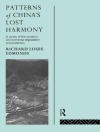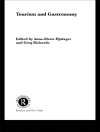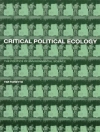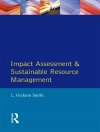This book is part of a five-volume set that explores sustainability in textile industry practices globally. Case studies are provided that cover the theoretical and practical implications of sustainable textile issues, including environmental footprints of textile manufacturing, consumer behavior, eco-design in clothing and apparels, supply chain sustainability, the chemistry of textile manufacturing, waste management and textile economics. The set will be of interest to researchers, engineers, industrialists, R&D managers and students working in textile chemistry, economics, materials science, and sustainable consumption and production.
This volume comprehensively covers the various sustainable natural materials used in textiles that originate from raw materials sourcing. The book discusses agricultural production systems and standards for the development of sustainable textile fibers, the effects of chemical surface modification methods on the properties of textile fibers, and how antibacterial and antifungal textiles can be manufactured using natural resources.
विषयसूची
Chapter1: The Effects of Ecological and Sustainable Chemical Surface Modification Methods On the Properties of Lignocellulose Based Fibers.- Chapter2: Sustainable plant based Natural Fibers.- Chapter3: COYOYO SILK: a potential sustainable luxury fiber.- Chapter4: Hemp fiber as a sustainable raw material source for textile industry: can we use its potential for more eco-friendly production?.- Chapter5: Sustainable antifungal and antibacterial textiles using natural resources.
लेखक के बारे में
Dr. Subramanian Senthilkannan Muthu currently works for Sg T Group as Head of Sustainability, and is based out of Hong Kong. He earned his Ph D from The Hong Kong Polytechnic University, and is a renowned expert in the areas of Environmental Sustainability in Textiles & Clothing Supply Chain, Product Life Cycle Assessment (LCA) and Product Carbon Footprint Assessment (PCF) in various industrial sectors. He has five years of industrial experience in textile manufacturing, research and development and textile testing and seven years of experience in life cycle assessment (LCA), carbon and ecological footprints assessment of various consumer products. He has published more than 75 research publications, written numerous book chapters and authored/edited multiple books in the areas of Carbon Footprint, Recycling, Environmental Assessment and Environmental Sustainability.
Miguel Angel Gardetti (Ph.D.), founded the Centre for Study of Sustainable Luxury, first initiative of its kind in the world with an academic/research profile. He is also the founder and director of the “Award for Sustainability in the Universe of Luxury in Latin America”. For his contributions in this field, he was granted the “Sustainable Leadership Award (academic category), ” in February, 2015 in Mumbai (India).
He is an active member of the Global Compact in Argentina –which is a United Nations initiative-, and was a member of its governance body –the Board of The Global Compact, Argentine Chapter – for two terms. He was also part of the task force that developed the “Management Responsible Education Principles” of the United Nations Global Compact. This task force was made up of over 55 renowned academics worldwide pertaining to top Business Schools.












